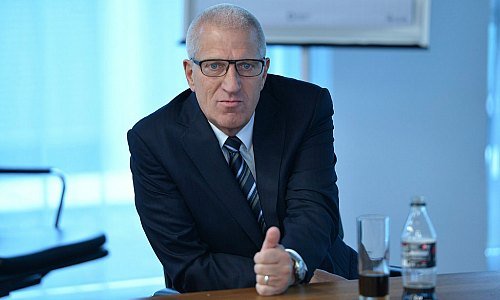Swiss prosecutors have opened a criminal investigation into well-known banker Pierin Vincenz's private deals during his time as chief executive of retail lender Raiffeisen.
Zurich prosecutors are probing Pierin Vincenz, who was chief executive of Raiffeisen until three years ago, over suspected misdealings, the bank said in a brief statement on Wednesday (statement attached in German). The probe centers on Aduno and Investnet, two Raiffeisen vehicles that Vincenz also personally invested in.
The St. Gallen-based bank said it would join the probe as a private complainant as well as lodging a criminal complaint against Vincenz and further potentially involved persons. «Raiffeisen is providing a maximum contribution to the conclusive clarification of this matter.»
The 61-year-old former banker denied the allegations of wrong-doing vehemently in a statement, and said he had always acted in the interests of the firms he worked for. «It was a shock to have the police at my door yesterday morning. I am completely shocked and surprised by this criminal investigation,» Vincenz said, according to a statement sent to the media via a communications firm.
Pushed Boundaries
The move is a rare and surprising reckoning for a once-powerful Swiss banker whose has successively retreated from positions of power in Swiss finance as the probe widened. The fact that Raiffeisen will join prosecutors as a private complainant underscores the bank's desire to distance itself from Vincenz's 16-year reign.
In 1999, Vincenz became chief executive of Raiffeisen, then a retail lender specialized in mortgages and small business loans. His vision was a Swiss universal bank based on the cooperative core business, while diversifying across the financial market. By 2014, the bank was one of a handful of systemically relevant firms for Switzerland, along UBS, Credit Suisse, and state-backed lender Zuercher Kantonalbank.
Vincenz led Raiffeisen to snap up stakes in investment firms Aduno and Investnet, forge a tie-up with Swiss private bank Vontobel in 2004, buy the remaining parts of collapsed Swiss private bank Wegelin, and build up considerable stakes in software maker Avaloq, insurer Helvetia, and derivatives boutique Leonteq.
Blurred Lines
The stakes eventually led to trouble for Vincenz personally: he often invested personally alongside Raiffeisen's deals, blurring the lines on governance. This led Finma to briefly investigate his fitness and probity last year, but the Swiss regulator was forced to drop the probe shortly after because Vincenz ditched his last remaining finance job.
For Vincenz, it is an ignominious end to a stellar 36-year career in banking: Finma said its initial proceedings had «raised questions over the proper business conduct» by Vincenz, especially how conflicts of interest over significant shareholdings were handled.
On the Hook
Though still rare for the size of its finance industry, suitability probes by regulators have grown somewhat more common in Switzerland, as finews.com wrote in November. The alpine nation has never prosecuted a banker or businessperson of Vincenz's stature.
Ironically, Raiffeisen is still on the hook with Finma, despite Vincenz' exit more than two years ago. The regulator is continuing to probe corporate governance at Raiffeisen, where Vincenz' wife Nadja Ceregato has long been chief counsel, in an enforcement proceeding – one of the few disciplinary weapons the regulator in Switzerland has.



































